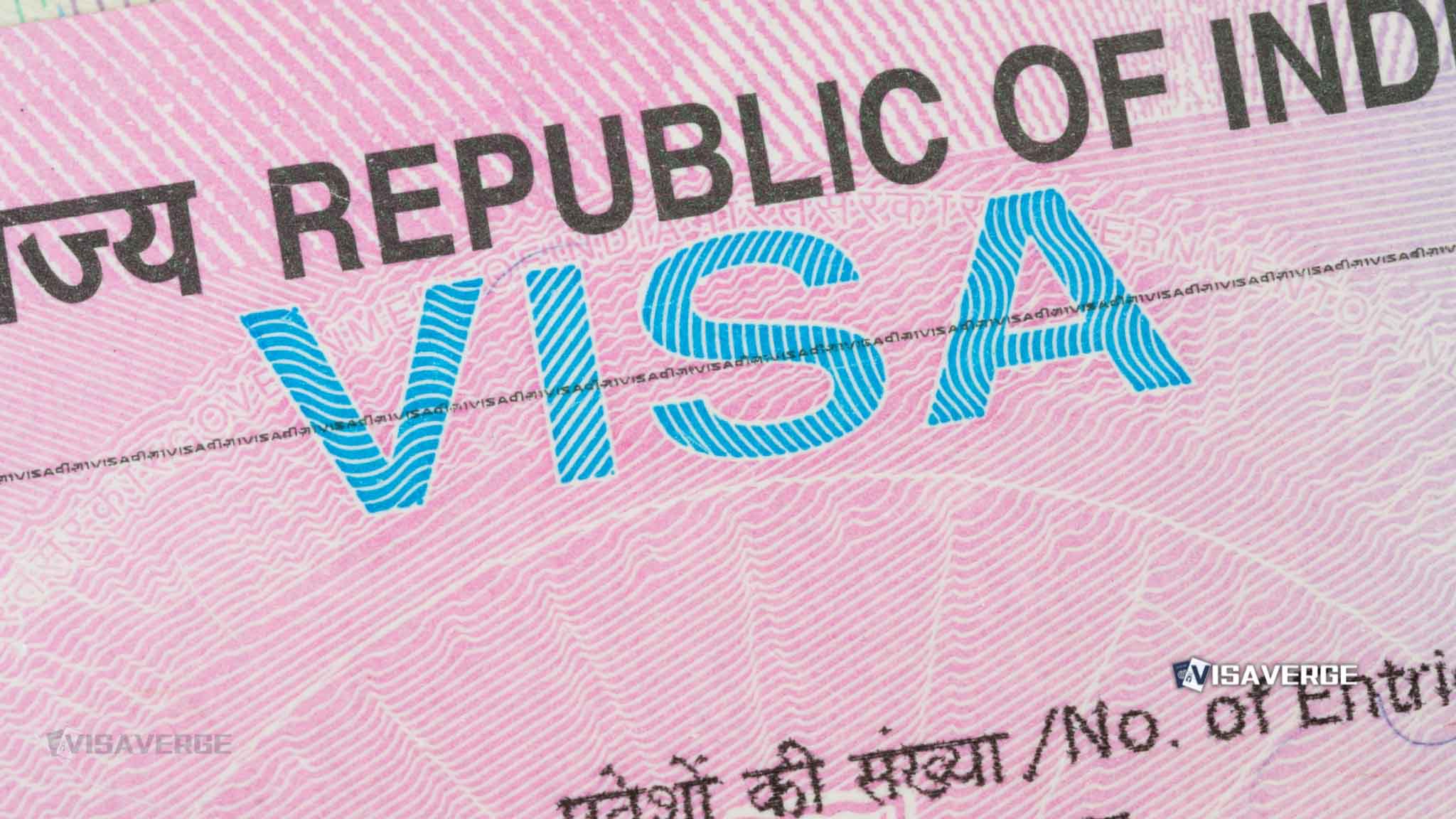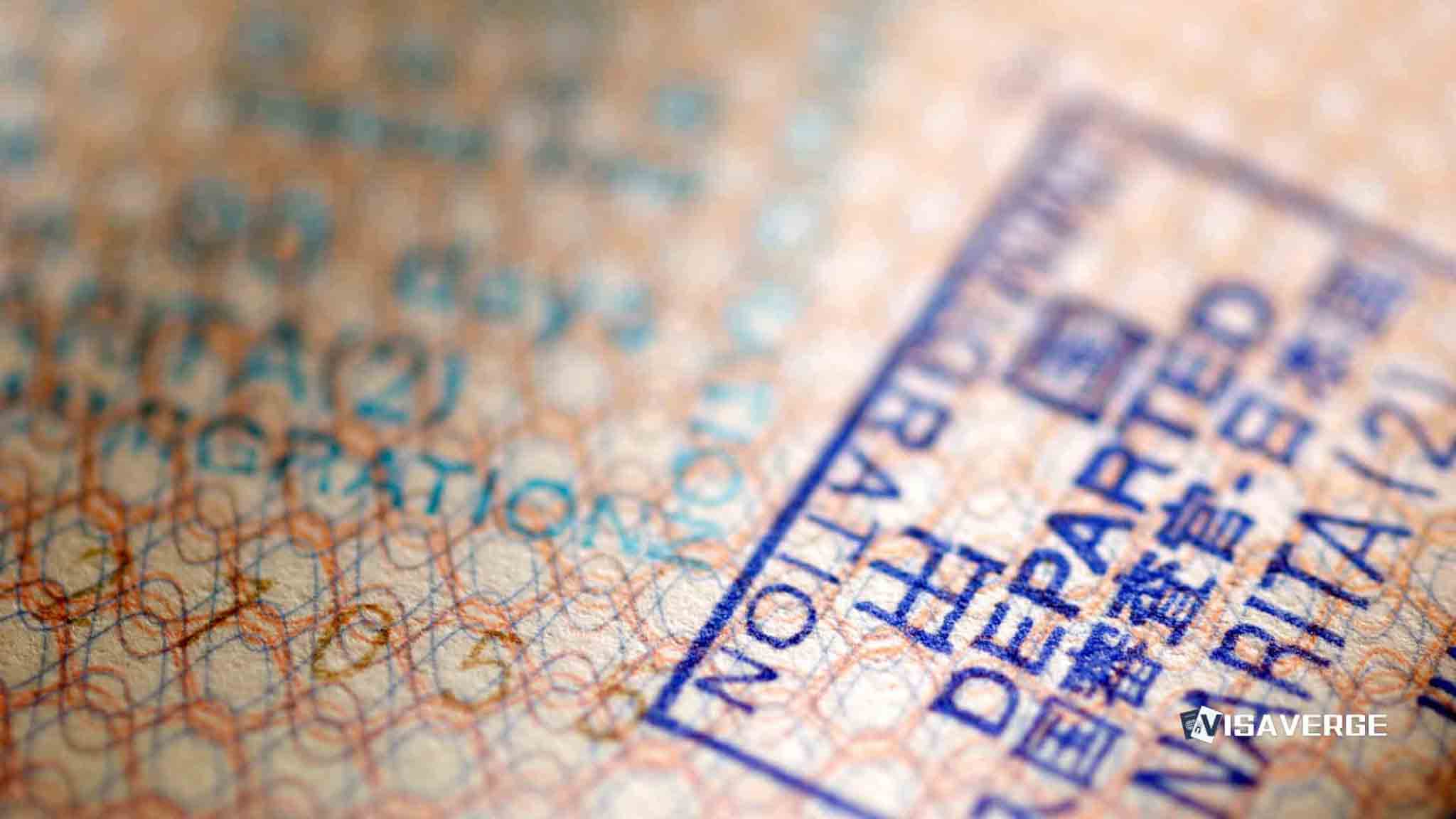Key Takeaways
• The OBBBA raises the Child Tax Credit to $2,500 per child from 2025 to 2028 with inflation adjustments after 2026.
• Both parents must have work-eligible Social Security Numbers to claim the credit if filing jointly under the new bill.
• Mixed-status families, including many H-1B visa holders with spouses using ITINs, will lose eligibility for the credit.
As of July 6, 2025, the United States 🇺🇸 House of Representatives has passed the One Big Beautiful Bill Act (OBBBA), a sweeping piece of legislation that could reshape how families—especially those with immigrant backgrounds—access the Child Tax Credit (CTC). The bill is now awaiting further action in the Senate, but its current language has already sparked concern and debate among immigrant families, tax professionals, and advocacy groups.
What’s changing? The OBBBA proposes to increase the Child Tax Credit to $2,500 per child for tax years 2025 through 2028, then keep it at $2,000 per child after 2028, with adjustments for inflation starting in 2026. However, the bill also introduces a new rule: both parents must have a work-eligible Social Security Number (SSN) to claim the credit if they file jointly. This change could have far-reaching effects, especially for H-1B visa holders and other mixed-status families.

Let’s break down what these changes mean, who will be affected, and what steps families should consider as the bill moves forward.
What Is the One Big Beautiful Bill Act?
The One Big Beautiful Bill Act is a major legislative package that covers a range of tax and family policy changes. One of its most talked-about features is the overhaul of the Child Tax Credit, a benefit that helps families with the cost of raising children.
Key Provisions of the OBBBA
- Child Tax Credit Increase: The credit will rise to $2,500 per child for 2025–2028. After that, it will return to $2,000 per child, with yearly increases tied to inflation starting in 2026.
- SSN Requirement for Parents: To claim the CTC, both parents (if filing jointly) must have a work-eligible Social Security Number. If even one parent lacks an SSN, the family cannot receive the credit.
- No CTC for Married Filing Separately: Married couples who file separate tax returns will not be eligible for the CTC.
- Impact on Mixed-Status Families: Families where one or both parents use an Individual Taxpayer Identification Number (ITIN) instead of an SSN will lose eligibility for the CTC.
Why the Social Security Number Requirement Matters
The new SSN rule is at the heart of the debate. Under current law, only the child must have an SSN to qualify for the CTC. The OBBBA would change this, requiring both parents to have work-eligible SSNs if they file jointly.
What Is a Work-Eligible SSN?
A work-eligible SSN is a Social Security Number issued to someone who is authorized to work in the United States 🇺🇸. This includes U.S. citizens, lawful permanent residents (green card holders), and many temporary visa holders, such as those on H-1B visas.
Who Uses an ITIN?
An Individual Taxpayer Identification Number (ITIN) is used by people who need to file taxes but are not eligible for an SSN. Many spouses of H-1B visa holders, for example, may have an ITIN if they are not authorized to work in the United States 🇺🇸.
How Will H-1B Families Be Affected?
Many H-1B visa holders in the United States 🇺🇸 are married and have children. Some of these families are “mixed-status,” meaning one parent has a work-eligible SSN (the H-1B holder) and the other parent has an ITIN (often the spouse on an H-4 visa without work authorization).
Under the OBBBA:
- Both parents must have SSNs: If one spouse has an ITIN, the family cannot claim the Child Tax Credit.
- No workaround by filing separately: The bill also blocks married couples who file separately from claiming the credit, closing a possible loophole.
Example Scenario
Let’s say Priya is in the United States 🇺🇸 on an H-1B visa and has a work-eligible SSN. Her husband, Raj, is on an H-4 visa and does not have work authorization, so he uses an ITIN to file taxes jointly with Priya. Under the OBBBA, Priya and Raj would not be able to claim the Child Tax Credit for their two children, even though Priya works and pays taxes.
Broader Impact on Mixed-Status Families
The new SSN requirement will not just affect H-1B families. It will also impact other mixed-status families, such as:
- Families where one parent is undocumented and uses an ITIN
- Families where one parent is a nonresident alien
- Families with recent immigrants who have not yet received an SSN
According to analysis from VisaVerge.com, this change could exclude hundreds of thousands of families from the Child Tax Credit, reducing their financial support and potentially increasing child poverty rates in immigrant communities.
Why Is the SSN Requirement Being Added?
Supporters of the SSN rule argue that it will help prevent fraud and ensure that only those authorized to work in the United States 🇺🇸 receive the credit. They point to past concerns about improper payments to people using ITINs.
Critics, however, say the rule unfairly punishes children who are U.S. citizens or lawful residents simply because one parent lacks an SSN. They argue that the change targets immigrant families and undermines the purpose of the Child Tax Credit, which is to help all children thrive.
The Child Tax Credit: What’s at Stake?
The Child Tax Credit is a key part of the tax code that helps families with the cost of raising children. For many, it means a larger tax refund or a smaller tax bill each year.
How the CTC Works Now
- Amount: Up to $2,000 per child under age 17
- Eligibility: The child must have an SSN. Parents can have either an SSN or ITIN.
- Refundable Portion: Up to $1,600 of the credit is refundable, meaning families can get this amount even if they owe no tax.
How the OBBBA Would Change Things
- Amount: Increases to $2,500 per child for 2025–2028, then returns to $2,000 (with inflation adjustments)
- Eligibility: Both parents must have work-eligible SSNs if filing jointly. No credit for married couples filing separately.
- Refundable Portion: The bill keeps the refundable feature, but fewer families will qualify due to the SSN rule.
Implications for Immigrant Families
The new rules could have several effects:
- Loss of Financial Support: Families who lose the CTC may face greater financial stress, especially those with lower incomes.
- Child Poverty: Children in mixed-status families, many of whom are U.S. citizens, could be pushed into poverty if their families lose the credit.
- Tax Filing Choices: Some families may consider changing their filing status, but the bill blocks married couples filing separately from claiming the credit.
What Should H-1B Families Do Now?
If you are an H-1B visa holder or part of a mixed-status family, here are some steps to consider:
- Check Your SSN Status: Make sure both spouses have work-eligible SSNs. If your spouse is eligible for an SSN (for example, if they recently received work authorization), apply as soon as possible.
- Monitor the Bill’s Progress: The OBBBA is not yet law. Watch for updates from official sources like the House Ways and Means Committee and the IRS.
- Consult a Tax Professional: Tax laws are complex, and your situation may have unique factors. A tax advisor can help you understand your options.
- Advocate for Change: If you are concerned about the impact of the SSN rule, consider reaching out to lawmakers or joining advocacy efforts.
The Debate: Policy, Politics, and People
The OBBBA’s changes to the Child Tax Credit highlight a larger debate about who should benefit from tax credits and how immigration status should affect eligibility.
Supporters Say:
- The SSN rule will reduce fraud and make sure credits go to those authorized to work.
- The increased credit amount will help many families.
Critics Say:
- The rule unfairly targets immigrant families and their children.
- Many U.S. citizen children will lose out because of their parents’ immigration status.
- The change could increase child poverty and hurt communities.
What’s Next for the One Big Beautiful Bill Act?
The OBBBA has passed the House but still needs approval from the Senate and the President. Lawmakers may propose amendments, and advocacy groups are pushing for changes to the SSN requirement.
Possible Outcomes
- The SSN rule could stay: If the Senate agrees with the House, the new rule will become law.
- The rule could be changed: Lawmakers could soften the requirement, for example, by allowing families with one SSN and one ITIN to qualify.
- The bill could fail: If the Senate rejects the bill, the current rules will remain.
Official Resources and Where to Get Help
For the latest updates on the One Big Beautiful Bill Act and the Child Tax Credit, check these official sources:
- House Ways and Means Committee: Updates on the bill’s progress and official text.
- IRS Child Tax Credit Information: Current rules and eligibility.
- Social Security Number Application: How to apply for an SSN if you are eligible.
If you need help with your taxes or understanding your eligibility, consider reaching out to a qualified tax professional or an immigrant advocacy group.
Frequently Asked Questions
Q: If my spouse has an ITIN and I have an SSN, can we claim the Child Tax Credit under the OBBBA?
A: No. Both spouses must have work-eligible SSNs if filing jointly to claim the credit.
Q: Can we file separately to get around the SSN rule?
A: No. The OBBBA also blocks married couples filing separately from claiming the CTC.
Q: What if my spouse becomes eligible for an SSN after the bill passes?
A: If your spouse receives a work-eligible SSN before you file your taxes, you may be able to claim the credit for that year.
Q: Does the SSN rule apply to the children?
A: Yes, the child must still have an SSN, as under current law.
Conclusion: What Families Need to Know
The One Big Beautiful Bill Act could bring big changes to the Child Tax Credit, especially for immigrant and mixed-status families. The new requirement that both parents have a work-eligible Social Security Number will mean that many families—especially those with H-1B visa holders and spouses with ITINs—may lose access to this important benefit.
As reported by VisaVerge.com, the impact could be widespread, affecting hundreds of thousands of families and their children. The debate over the SSN rule is likely to continue as the bill moves through Congress, with advocates on both sides making their voices heard.
For now, families should stay informed, check their SSN status, and seek professional advice if needed. The final outcome will depend on what happens next in the Senate and whether lawmakers decide to keep, change, or remove the SSN requirement.
To keep up with the latest developments, visit the House Ways and Means Committee and the IRS Child Tax Credit page. These official sources will have the most up-to-date information as the legislative process continues.
Key Takeaways:
- The OBBBA would increase the Child Tax Credit but require both parents to have work-eligible SSNs if filing jointly.
- Mixed-status families, including many H-1B households, could lose eligibility for the credit.
- Married couples filing separately will not be able to claim the CTC.
- The bill is not yet law; changes are possible as it moves through Congress.
- Stay informed and seek professional advice to understand how these changes may affect your family.
Learn Today
One Big Beautiful Bill Act (OBBBA) → A 2025 US legislative bill proposing tax and family policy changes, including Child Tax Credit revisions.
Child Tax Credit (CTC) → A tax benefit providing families with up to $2,500 per child to reduce tax burden and support child expenses.
Social Security Number (SSN) → A US government issued number required to work legally and access certain tax credits like the CTC.
Individual Taxpayer Identification Number (ITIN) → A tax processing number for individuals ineligible for SSNs but who need to file US taxes.
Mixed-Status Families → Households where family members have different immigration document statuses, such as one parent with SSN and another with ITIN.
This Article in a Nutshell
The One Big Beautiful Bill Act could reshape the Child Tax Credit by increasing amounts but requiring both parents to have eligible Social Security Numbers, potentially excluding many immigrant families with mixed statuses, especially H-1B households, from this crucial financial support starting in 2025.
— By VisaVerge.com








